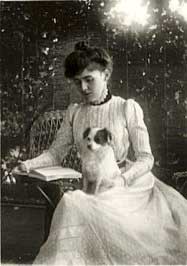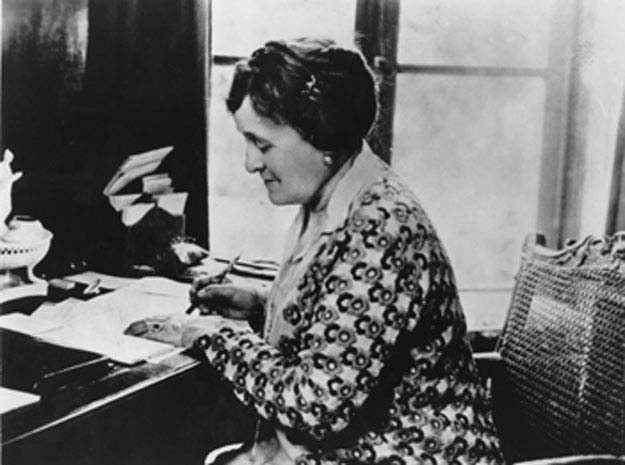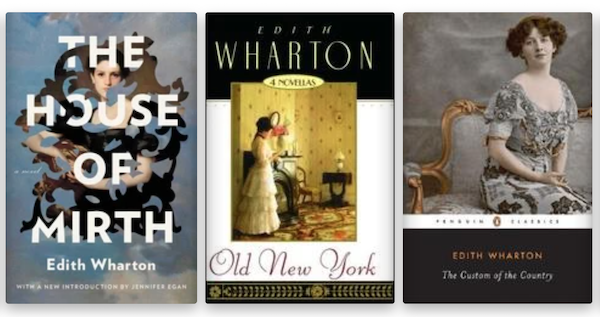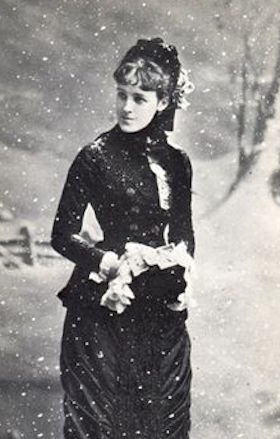Edith Wharton Needed Approval, Just Like the Rest of Us
By Nava Atlas | On January 3, 2015 | Updated September 16, 2022 | Comments (0)

From her disapproving mother and wayward husband to her snooty society friends, Edith Wharton (1862-1937) lived in a social milieu that reinforced her deep insecurity and sense of non-belonging, both as a woman and as a writer.
Her first tentative steps into the literary world, the place she most longed to be, met with steady acceptance and success that took her by surprise. It took quite some doing before Wharton believed she was worthy of it.
The publication of Wharton’s first collection of fictional short stories, The Greater Inclination, seemed to turn the tide as she finally accepted herself as a professional writer and not a dilettante.
A steady climb upward
She vowed to turn away from the “distractions of a busy and sociable life, full of friends and travel and gardening for the discipline of the daily task.” As she wrote in her memoir, this is when she went from being “a drifting amateur in to a professional,” and, most importantly, “gained what I lacked most—self confidence.”
It was a steady climb upward punctuated with major distinctions, including the Pulitzer Prize for the Novel forThe Age of Innocence that Wharton in 1921, the first woman to achieve this distinction. Two years later she also became the first woman ever to receive an honorary doctorate (conferred upon her by Yale University).
. . . . . . . . . .

Edith Wharton’s Reflections on Her Writing Life
. . . . . . . . . .
Self-realization didn’t come easily
Self-realization didn’t come readily to women of Wharton’s time, even one as privileged as she. Self-acceptance doesn’t come easily to women of any era, including the present. Without it, even a working writer can continue to feel like a “drifting amateur” and considerable talent can go to naught. In one of her most famous passages from A Backward Glance, she wrote:
“I had written short stories that were thought worthy of preservation! Was it the same insignificant I that I had always known? Any one walking along the streets might go into any bookshop, and say “Please give me Edith Wharton’s book,” and the clerk, without bursting into incredulous laughter, would produce it, and be paid for it, and the purchaser would walk home with it and read it, and talk of it, and pass it on to other people to read!
The whole business seemed too unreal to be anything but a practical joke played on me by some occult humourist; and my friends could not have been more astonished and incredulous than I was.”
. . . . . . . . . .
See also: Perceptive Quotes by Edith Wharton
. . . . . . . . . .
First reviews
Wharton was just as nervous about facing critical response to her work as any beginning author:
“I opened the first notices of the book with trembling hands and a suffocated heart. What I had done was actually thought important enough to be not only printed but reviewed!
With a sense of mingled guilt and self-satisfaction I glanced at one article after another. They were unbelievably kind, but for the most part their praise only humbled me; and often I found it bewildering …
My long experimenting had resulted in two or three books which brought me more encouragement than I had ever dreamed of obtaining, and were the means of my making some of the happiest friendships of my life.
The reception of my books gave me the self-confidence I had so long lacked, and in the company of people who shared my tastes, and treated me as their equal, I ceased to suffer from the agonizing shyness which used to rob such encounters of all pleasure.”
These selections are from A Backward Glance, Edith Wharton’s memoir, published in 1934
. . . . . . . . . .


Leave a Reply